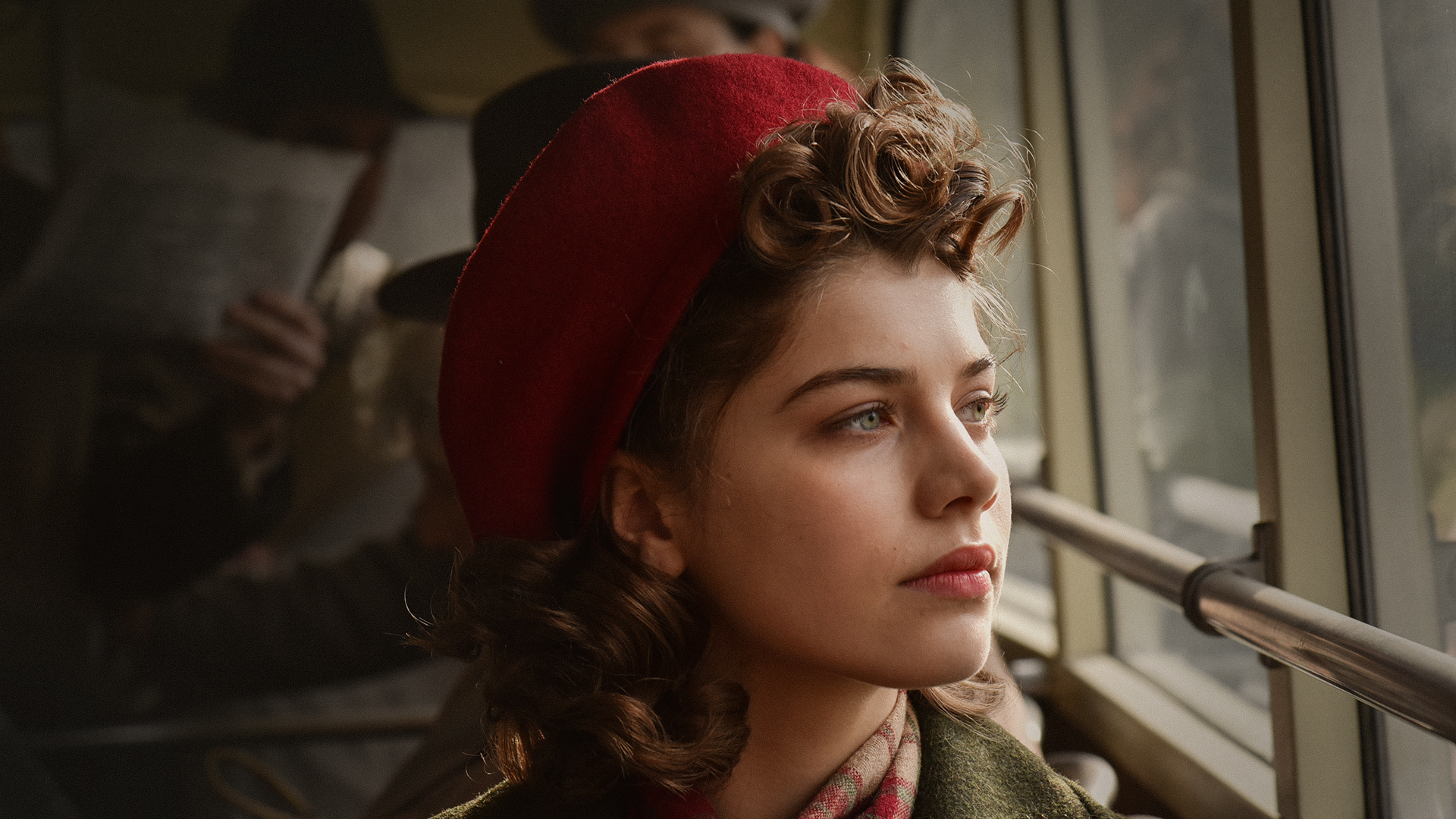Abigél Szőke, the rising star of Hungarian cinema, comes to Berlin
Variety has included Szőke in their list of ten young, notable talents among European filmmakers. At the Berlin Film Festival she will be able to introduce herself to foreign professionals at the reception organised by the magazine.
‘She can be anything between 5 and 70. A little girl, a wife or a grumpy old woman’, says director and screenwriter Barnabás Tóth about Klára, the lead in Those Who Remained. But he could also be talking about the actress Abigél Szőke, who played Klára. Despite her young age (21), Szőke has already made a name for herself as a versatile actress in Hungary. Trained at Margit Földessy’s drama studio and a student at the University of Theatre and Film Arts, Szőke had already secured small parts in leading Hungarian movies such as Károly Ujj Mészáros’s police procedural X – The eXploited and Árpád Sopsits’s serial-killer thriller Strangled before she was discovered by Barnabás Tóth and the casting director Irma Ascher.
‘She has achingly beautiful eyes that carry a secret. There is deep pain and some kind of reckoning in them that made her perfect for the part’, says Tóth, who describes Szőke as a diligent, curious, open-minded and humble actress with an exquisite tolerance for heavy workload. ‘She’s playful, loves to entertain and is eager to push her boundaries.’

Abigél Szőke (Photo: Emmer László)
Pushing her boundaries is exactly what was expected of her in Those Who Remained, an elegantly crafted and soft-spoken melodrama that stands out amongst Holocaust movies by focusing on the aftermath of the tragedy, on those who had not perished in the war but who lived to cope with inexplicable traumas. ‘To play Klára’s multifariousness authentically was the biggest challenge’, says Szőke, whose family was directly affected by the Holocaust. In preparation for the role she visited and talked at length to her great-grandmother’s sister, Zsóka Szedő, a Holocaust survivor and herself in the film industry, having worked as an assistant costume designer in famous Hungarian movies like István Szabó’s 25 Fireman’s Street and Gyula Gazdag’s banned Singing on the Treadmill.
Method-like preparation is one of Szőke’s fortes. Before shooting Those Who Remained she lost a few kilos, visited the House of Terror Museum in Budapest, went through extensive rehearsals and formed a good rapport with her co-star Károly Hajduk, a veteran of Hungarian theatre. The latter was especially needed as a suppressed sexual tension develops between Aldo, a lonely gynaecologist who lost his family in the Holocaust, and Klára, an orphan who sees a father figure in him. This tension was played with exemplary refinement by the two actors, making the movie relevant in the era of the #MeToo movement as well.

Those Who Remained - Abigél Szőke
‘Loneliness binds them together. This relationship strengthened my belief that it is important to dare and give something of yourself to others. When Klára becomes a bit more mature, their relationship stumbles. The question of sexuality comes up but Aldo draws a subtle, but firm line. Thanks to his decision, Klára eventually manages to establish a healthy rhythm in her life’, said Szőke in an interview with Marie Claire Hungary. The actress portrayed Klára’s coming out of her shell with impressive naturalism.
Szőke comes from a young generation of Hungarian actors whose first language is cinema. ‘She loves the camera and the camera loves her. She can be natural without making an effort. She is photogenic at every time of day, light or angle’, says Tóth, who notes that Szőke has a very expressive face that she is able to use to its maximum effect. In Those Who Remained, her facial expressions convey deeply rooted sadness but at the same time an untameable zest for life.
The success of this warm-hearted, life-affirming movie lies partly in the acting masterclass presented by Szőke and Hajduk. ‘What happened with this movie is nothing short of a miracle’, says Hajduk about the low-budgeted but highly ambitious Those Who Remained, which opened at the Telluride Film Festival to rave reviews that unanimously praised Szőke’s talents. Joe Morgenstern of The Wall Street Journal called her performance ‘not just surprising but inexplicably beautiful’ and ‘the most surprising performance (of Telluride)’, while Alissa Simon of Variety went as far as to call her ‘a revelation. She makes Klára’s energy, pain and intellect palpable, all the while being touchingly tuned to the emotional shadings of Aldo’.
It is clear that Szőke is a talent to watch out for and that she has a bright future ahead of her. Some even see her as the new Laetitia Casta. Barnabás Tóth agrees with them wholeheartedly: ‘On top of speaking fluent English and German she can also sing and dance quite well, so the sky is the limit for her.’
Tamás Soós
